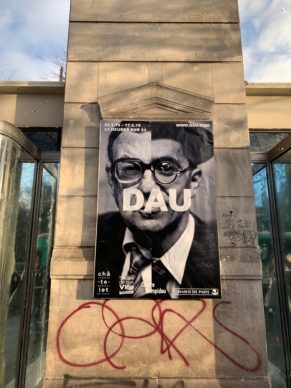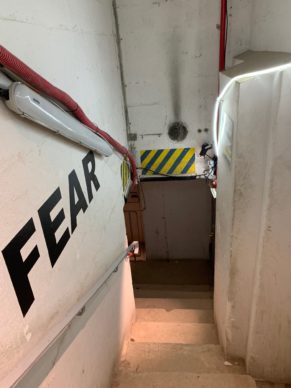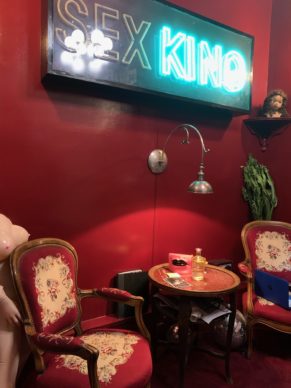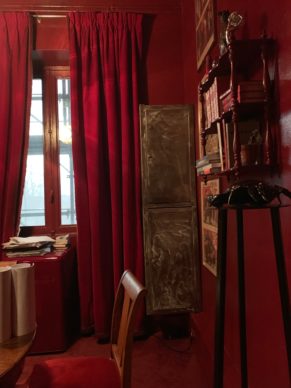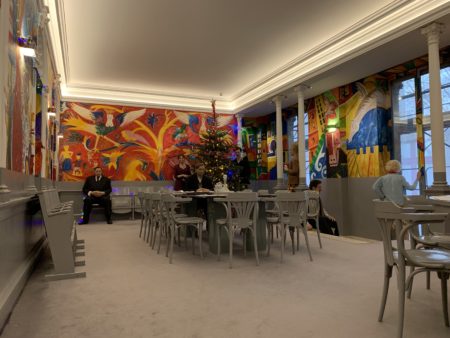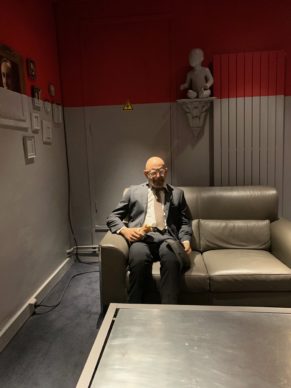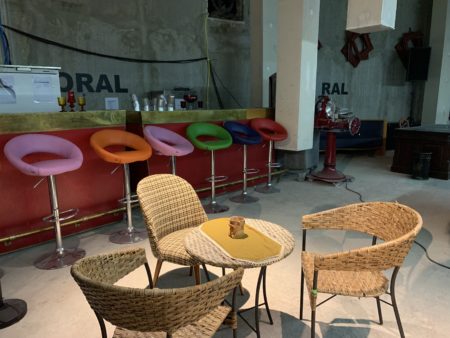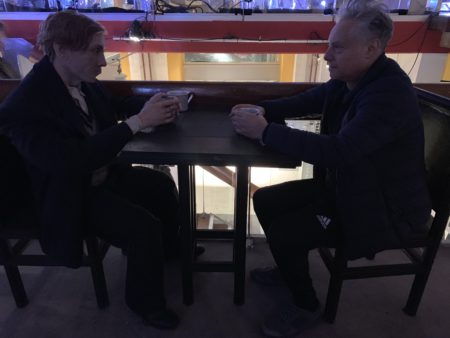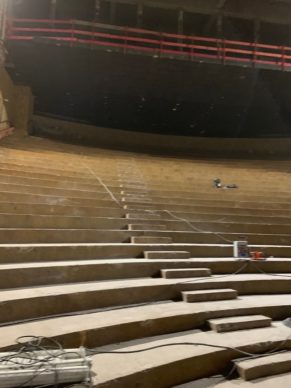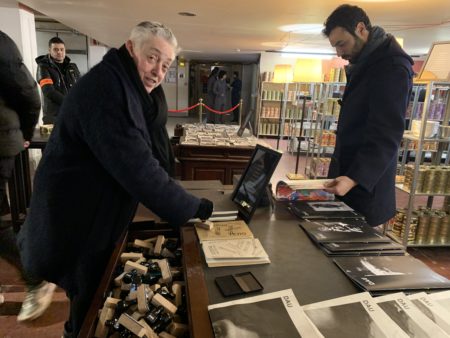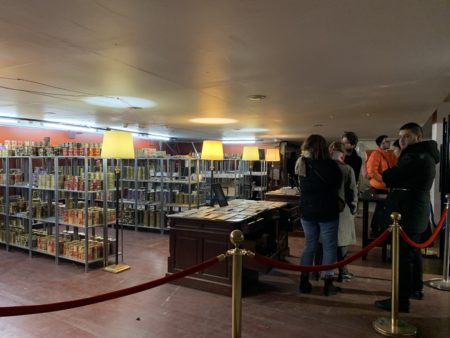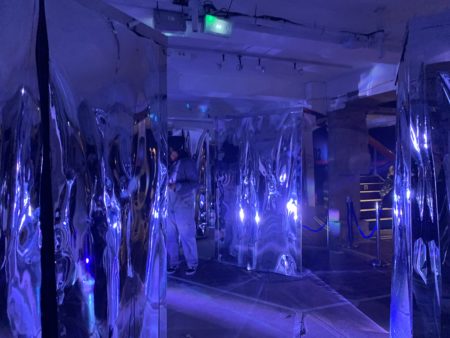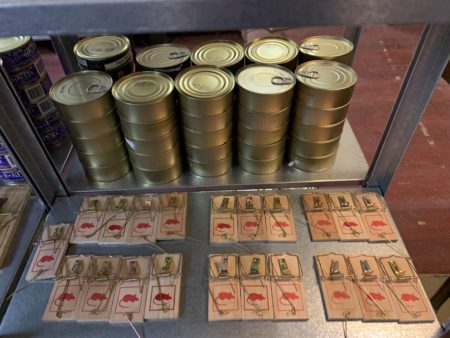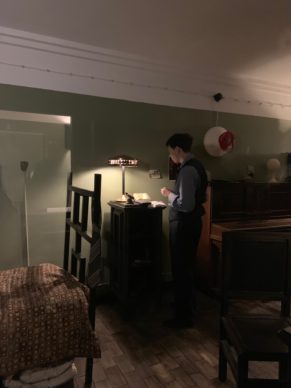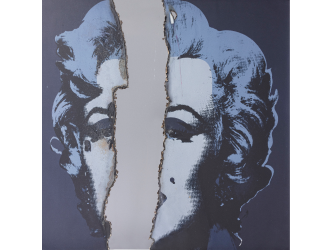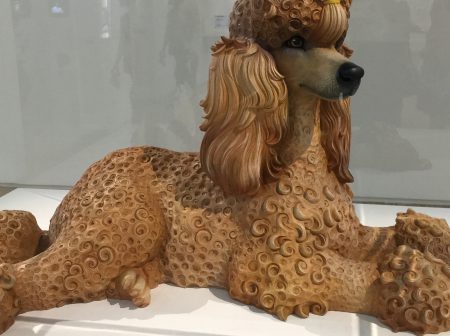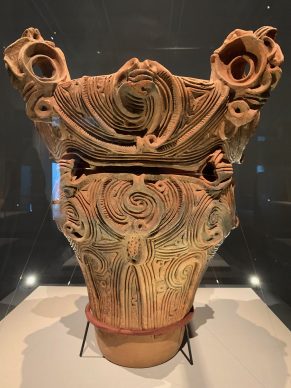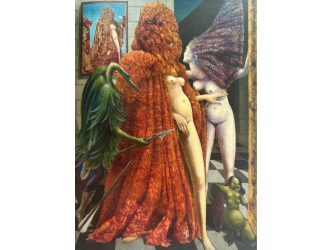On paper the Dau project doesn’t fail to amaze.
This is the story of a Russian filmmaker who hasn’t filmed all that much, Ilya Khrzhanovsky (born in 1975), who is said to have succeeded in convincing a New Russian who made his fortune in 4G, Sergueï Adoniev, to finance a project that goes beyond all human dimensions.
Khrzhanovsky, who refuses to give any interviews, is passionate about the turbulent existence of a fascinating Russian physicist, Lev Davidovich Landau (1908-1968), known as Dau, who won the Nobel Prize in 1962 (he discovered the properties of helium, he opposed Stalin and he also had a very colourful sex life).
Khrzhanovsky created a gigantic film studio built from scratch in Ukraine, in which he reconstructed his life over two years.
400 extras act out a kind of “made in the USSR” reality television show under the intermittent gaze of a film camera.
Everyone is dressed in the drab clothing of the period and the title role is played by Teodor Currentzis, who in his day job is a talented Greek-Russian conductor.
By 2011 this Soviet revival had been the subject of no less than 700 hours of film.
But rather than presenting a classic film biopic, Ilya Khrzhanovsky has decided to create a kind of sprawling, immersive installation in Paris at the Théâtre de la Ville and the Théâtre du Chatelet (both of which are undergoing building works) plus a room in the permanent collections at the Centre Pompidou. The installation is supposed to travel to London and Berlin.
After a difficult start – the prefecture refused to grant them authorisation for safety reasons – Dau is open to the public, for the moment only at the Théâtre de la Ville and the Centre Pompidou.
Watch the video in which the secretive Ilya Khrzhanovsky announces that Dau won’t be able to open on time:
In the heart of the Centre Pompidou there’s a voyeuristic activity: the reconstruction of a Russian old style apartment that sees the evolution of a true scientist, which can be observed through narrow apertures.
At the Théâtre de la Ville, in the maze of corridors, compartments and basements, if you arrive at the right time (Dau is open 24 hours a day) you can attend conferences, discussions, shows or visits with various shamans in individual cubicles with shiny metallic surfaces in a decor that is either fascinating or terrifying, but always decadent.
Mannequins positioned all over the building represent, we imagine, eminent figures from the period.
The reconstructed decors are clearly reminiscent of the work of the most famous Russian contemporary artist couple today, Ilya and Emilia Kabakov, whose installation the “Communal Kitchen” belongs to the Musée Maillol in Paris and could very fittingly have formed part of the layout here.
In a room filled with iron bedsteads and worn mattresses we’re also reminded of the evocative installations of French artist Christian Boltanski.
For Martine d’Anglejan-Chatillon, the producer of Dau who is well-versed in contemporary art – having previously worked at the Dane Gallery in London with Steve McQueen, among others – this project has the virtue of showing the perversity of any man-made system.
For a truly immersive experience, you are advised to drink vodka from an aluminium tankard and purchase utterly unappetizing Siberian preserves.
We await the visit from English rock group Massive Attack and it is sublime to attend the rehearsal of a Tchaikovsky symphony by Teodor Currentzis with 90 musicians in a ruined hall.
But the long-running screening of the 13 films made by Khrzhanovsky, which are central to the project, is less so.
A great boredom arises from interminable narratives with a distinct lack of editing. The French daily Le Monde condemned certain violent sexual scenes in the film. Still have yet to find them though…
Ruth Mackenzie, the artistic director at the Théâtre du Chatelet, believes that Dau is a once-in-a-generation event.
The idea of the project was discreetly passed on to her by Alex Poots, artistic director of The Shed, the fabulous multidisciplinary space that will be opening next April in New York .
In order to access this vast, new kind of performance, it is obligatory to leave your mobile phone at the door.
Access is granted once you’ve paid for a visa issued by Dau’s consulate general, with a built-in holographic logo, which establishes your psychological profile and your itinerary within this communist labyrinth.
Sadly for Dau, the addition of a certain number of massive operations does not make for a great artistic event.
Until 17 February. www.theatredelaville-paris.com.
Support independent news on art.
Your contribution : Make a monthly commitment to support JB Reports or a one off contribution as and when you feel like it. Choose the option that suits you best.
Need to cancel a recurring donation? Please go here.
The donation is considered to be a subscription for a fee set by the donor and for a duration also set by the donor.

